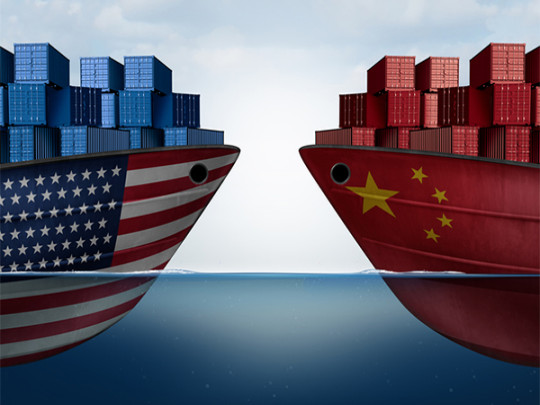China ‘evaluating’ US offer to engage in trade negotiations
China is reviewing a U.S. offer to resume trade talks, demanding sincerity and opposing coercion, amid escalating tariffs, economic strain, and mixed signals about the status of negotiations.

China is "evaluating" a U.S. proposal to restart trade negotiations, according to a statement from Beijing, following recent claims by Donald Trump that talks were already underway.
On Friday, China’s commerce ministry said, “The U.S. has recently taken the initiative multiple times to relay its desire to talk through relevant parties.” A day earlier, prominent Chinese voices had signaled openness to dialogue, boosting investor confidence and sending markets higher on both sides of the Atlantic.
Ren Yi, a nationalist blogger known as "Chairman Rabbit," claimed that U.S. officials had been "frequently and proactively" reaching out to Chinese counterparts to initiate economic and trade discussions.
Despite these efforts, China denied assertions by U.S. officials that negotiations had already begun or that Beijing had initiated any such move. Trump previously stated that Chinese President Xi Jinping had called him, a claim China’s foreign ministry dismissed as misleading. Ren emphasized that if China had indeed made the first move, the U.S. wouldn’t have needed to reach out so actively.
China’s commerce ministry added that the U.S. must show genuine "sincerity" in talks, warning against "coercion and extortion." Beijing has consistently criticized Washington’s approach to trade as aggressive and one-sided.
Since Trump reignited trade tensions in April, U.S. tariffs on Chinese imports have climbed to 145%, with China retaliating at 125%. Despite the hardline stance from both sides, each has introduced selective tariff exemptions to mitigate the broader economic fallout.
Meanwhile, signs of economic strain are emerging in China. Factory activity slowed in April, with the national statistics bureau citing “sharp changes in [China’s] external environment.” President Xi Jinping called on officials to adapt to evolving global conditions, although he didn’t explicitly name the U.S.
Chinese state media, however, has been more direct. A foreign ministry video released this week accused the U.S. of bullying, likening capitulation to “drinking poison.”
Further complicating matters, a new U.S. executive order came into effect Friday, closing the “de minimis” tariff loophole. This policy shift—targeting low-value imports previously exempt from customs duties—disproportionately impacts Chinese exporters.
Still, there may be room for optimism. U.S. Treasury Secretary Janet Yellen said this week the priority was to de-escalate tensions, suggesting that a broader trade agreement could follow.

(1).jpg)

